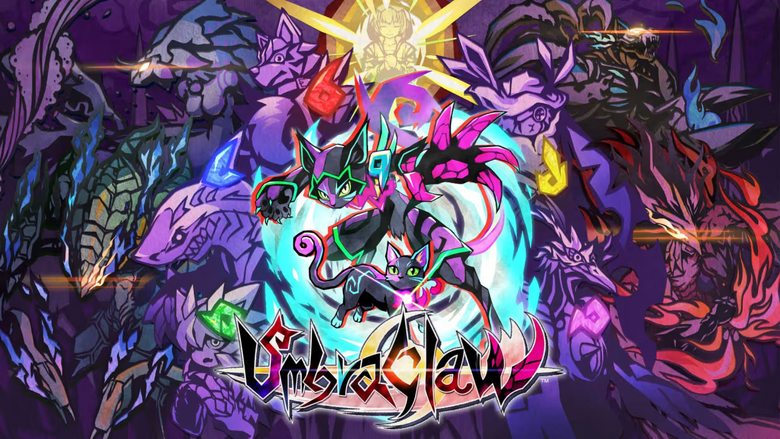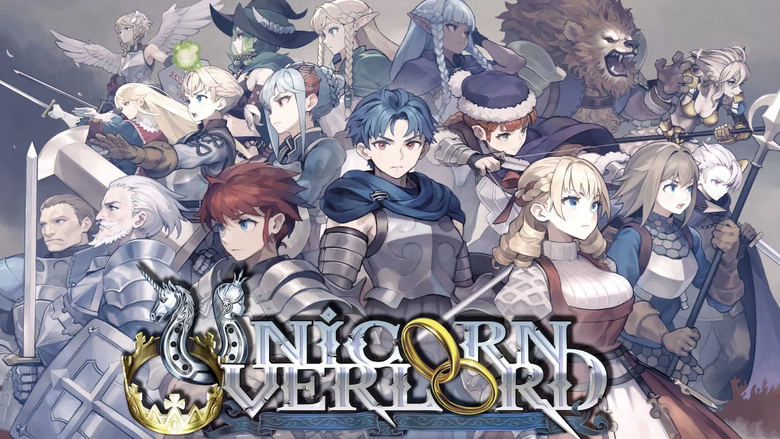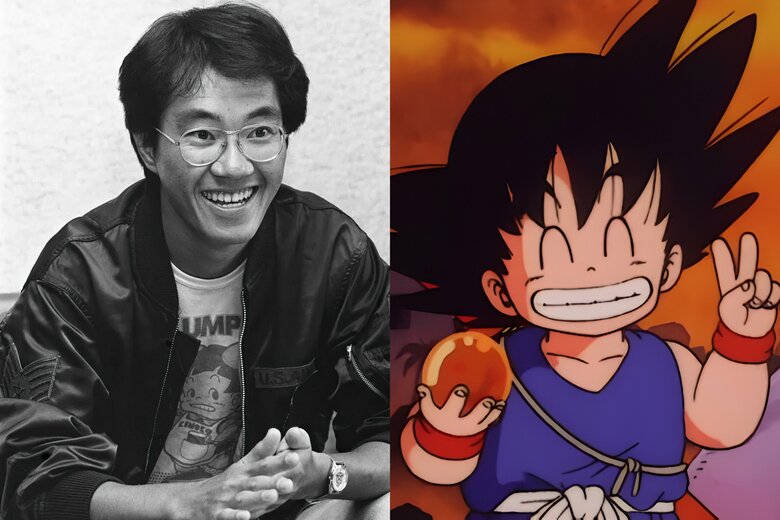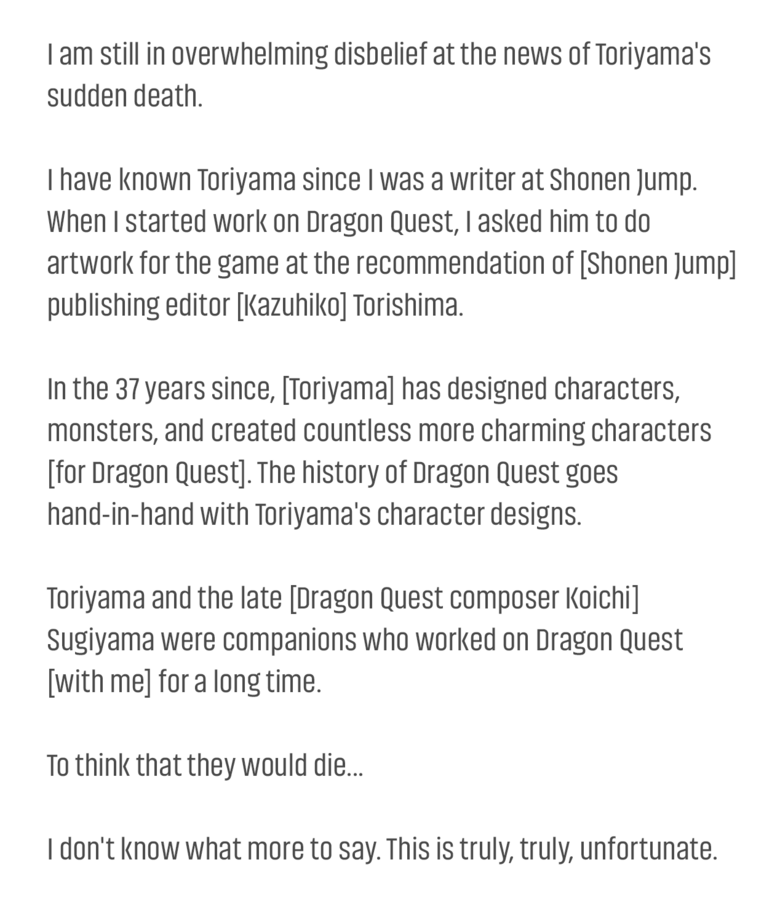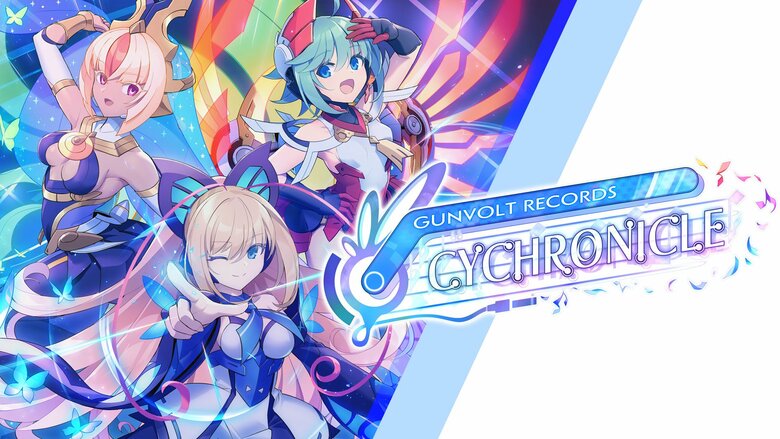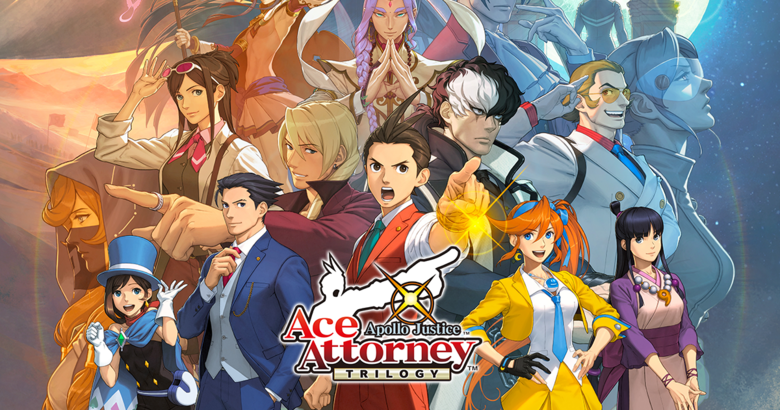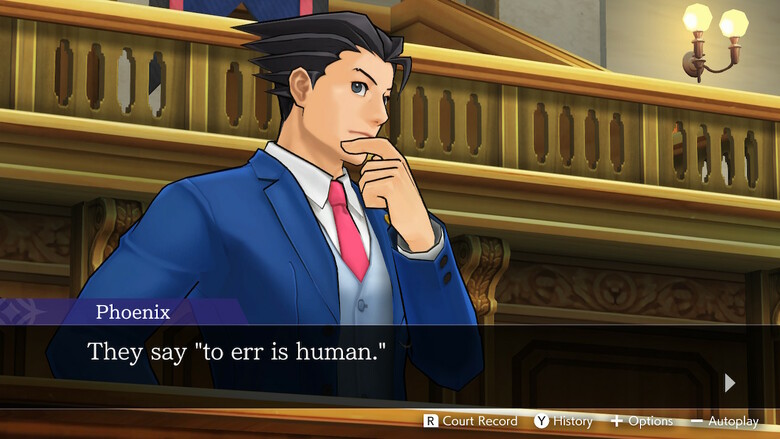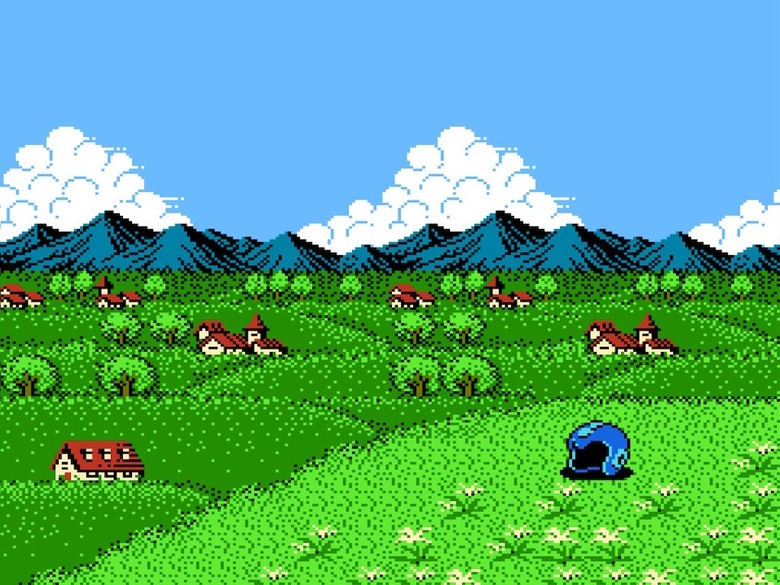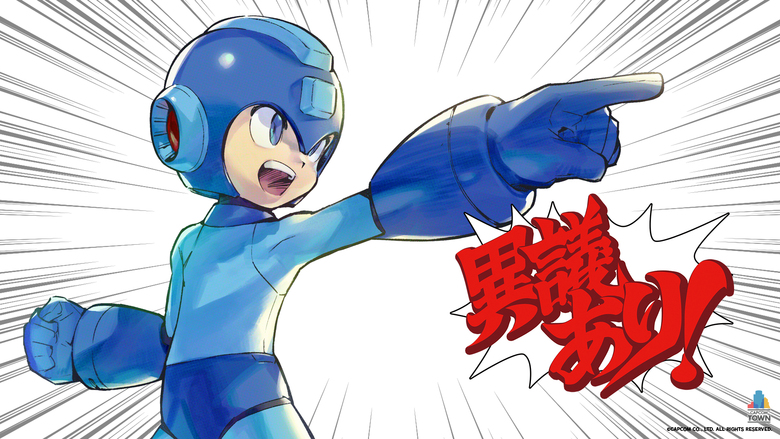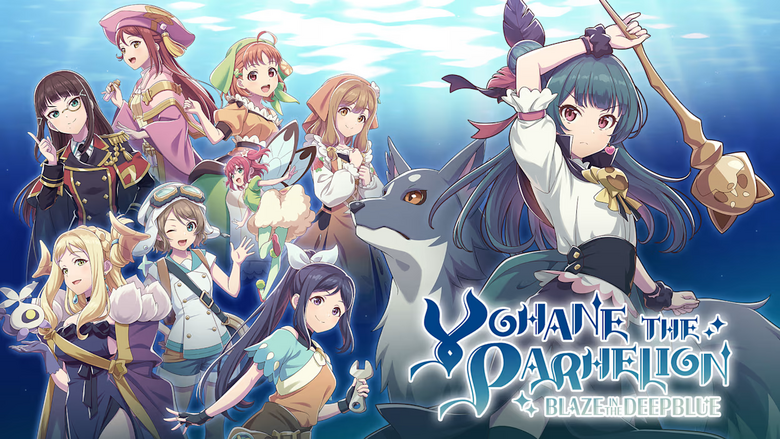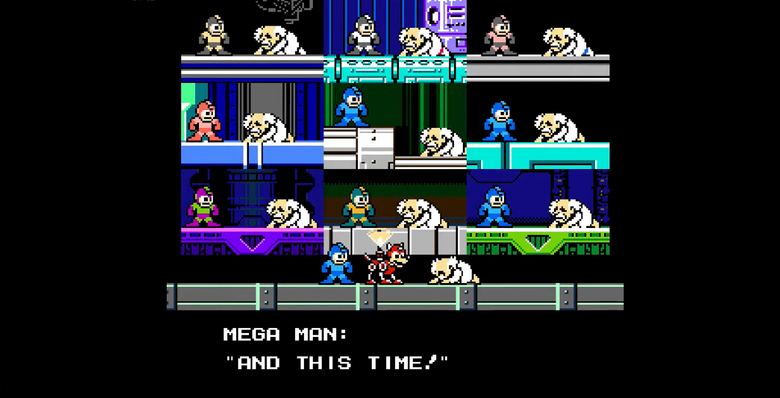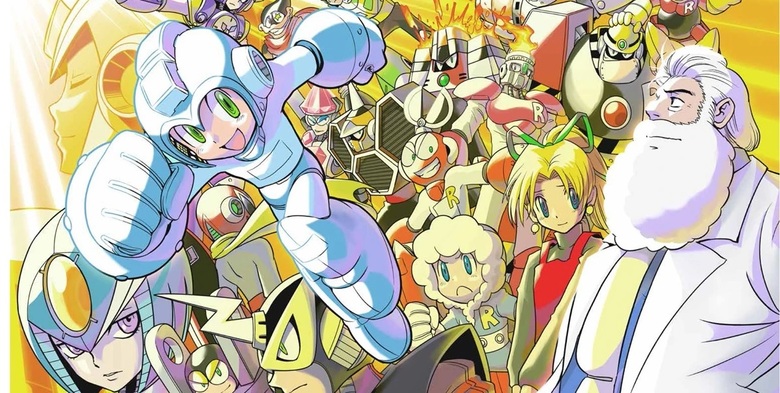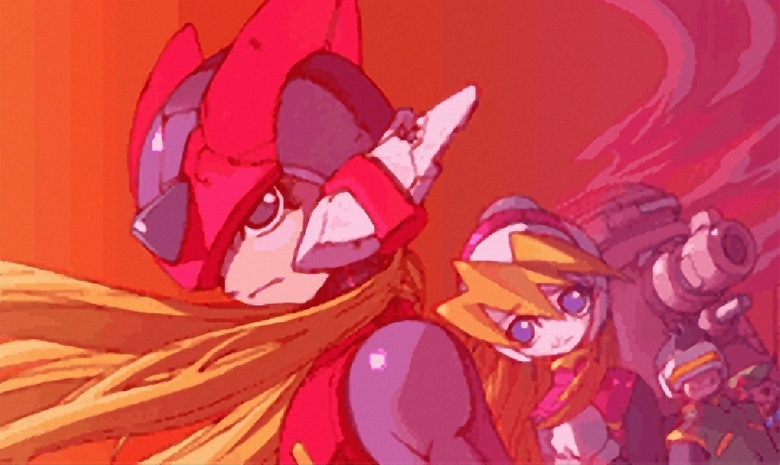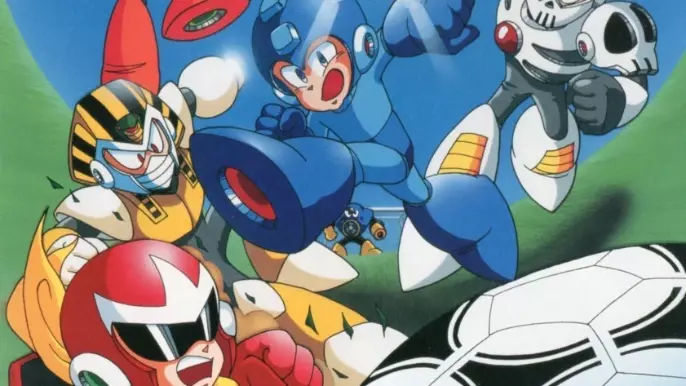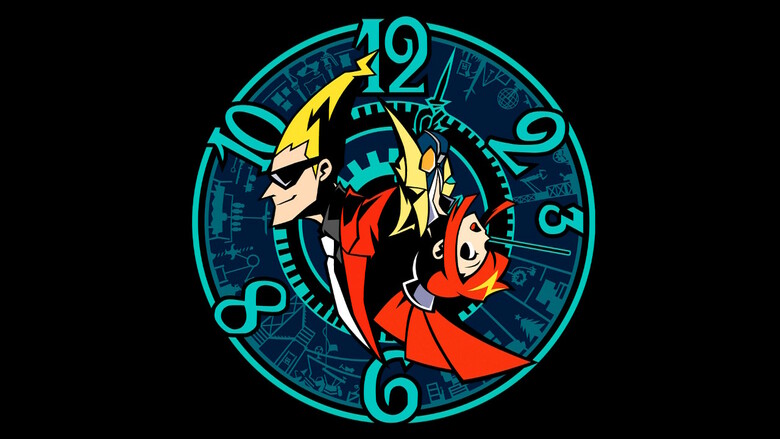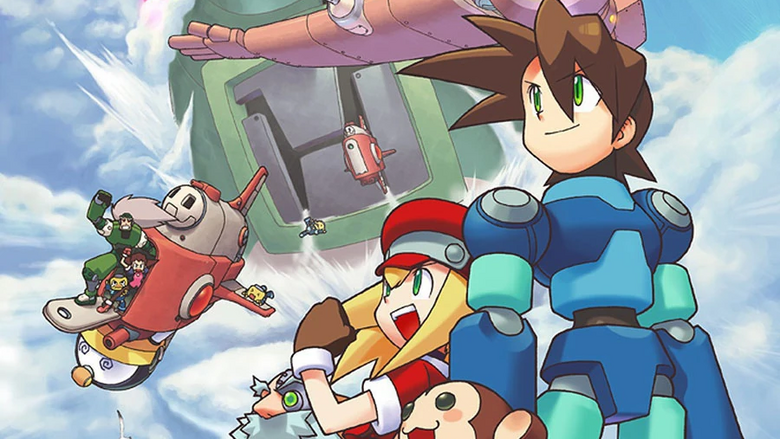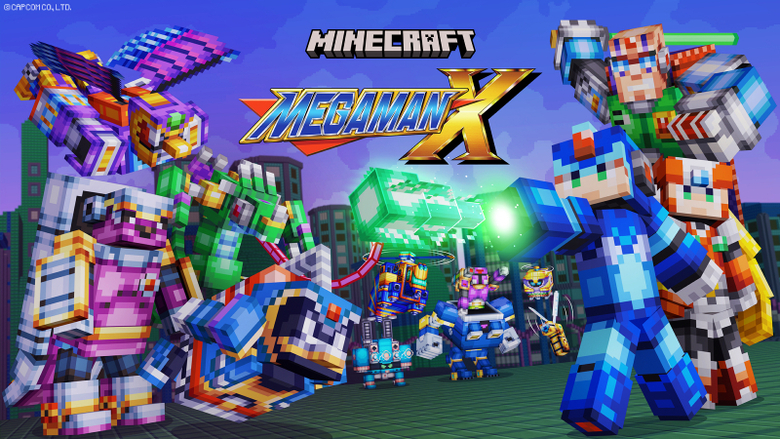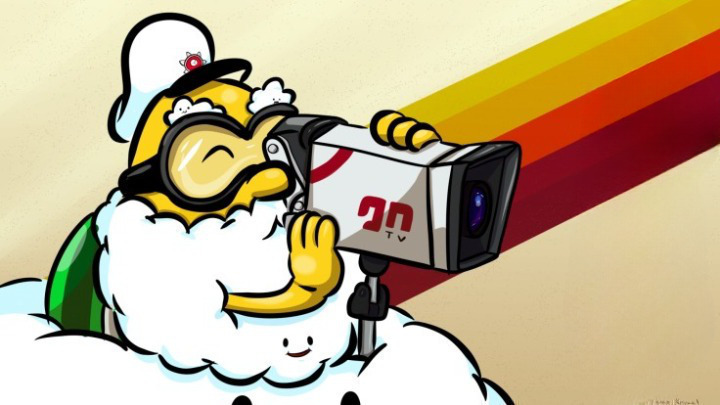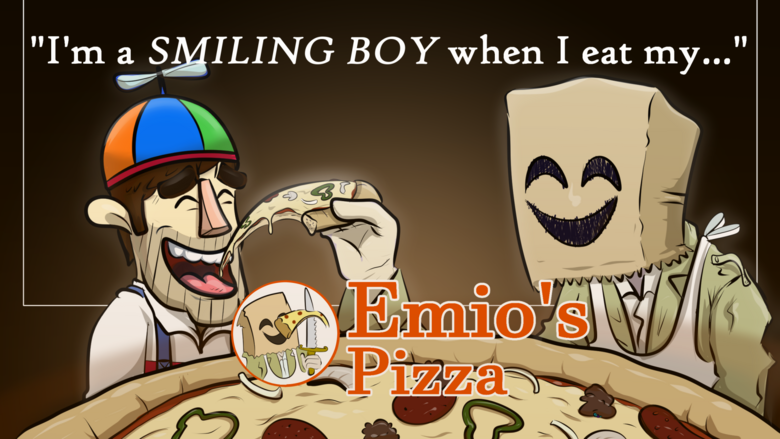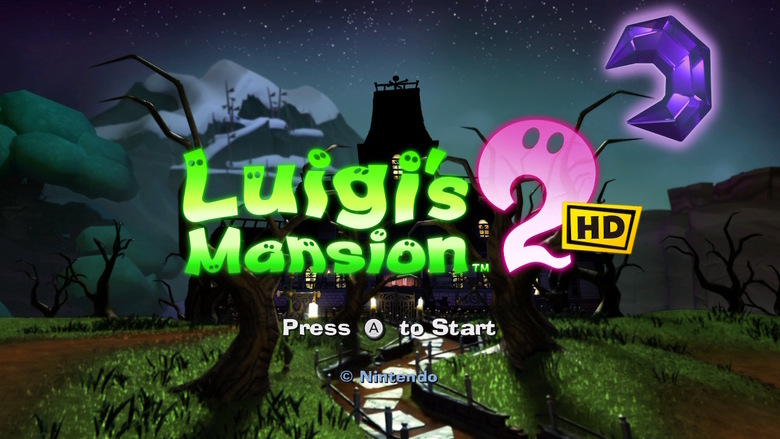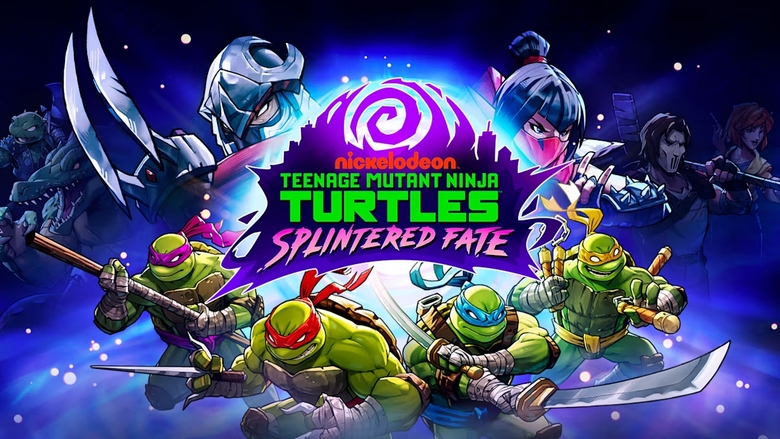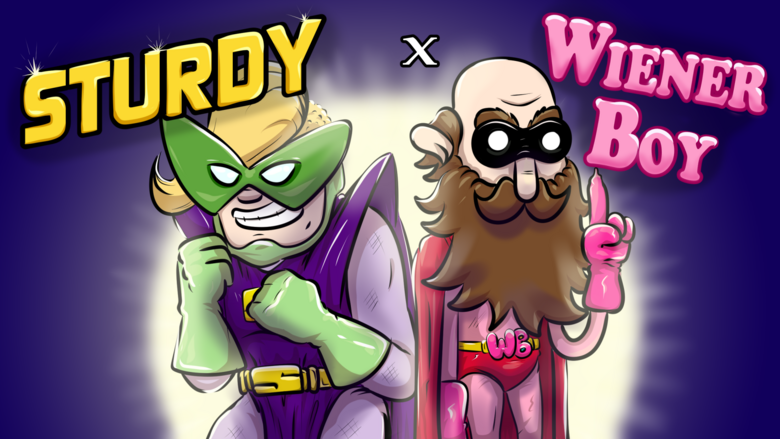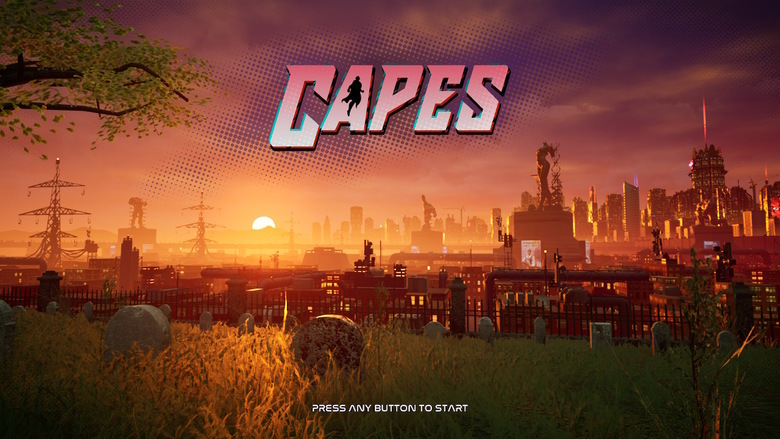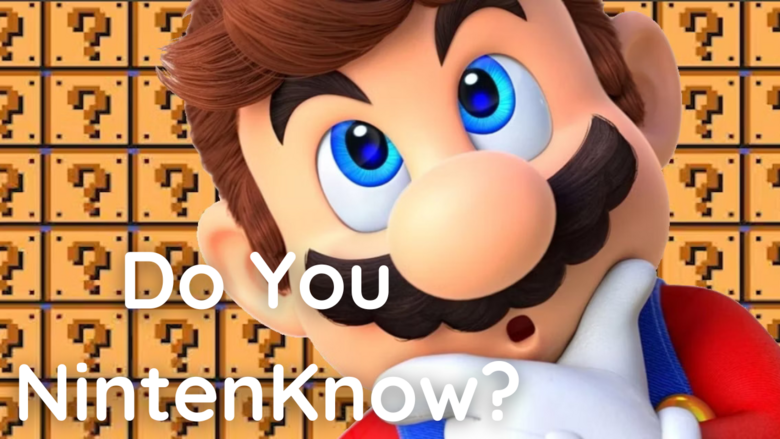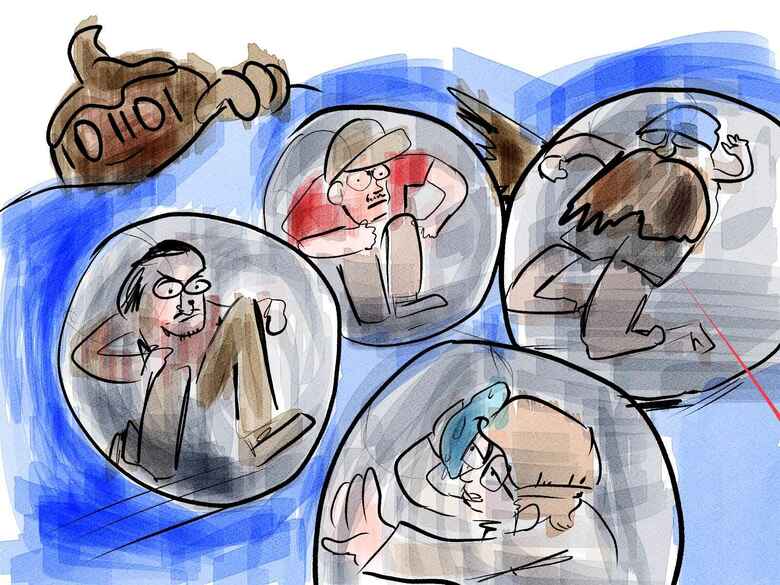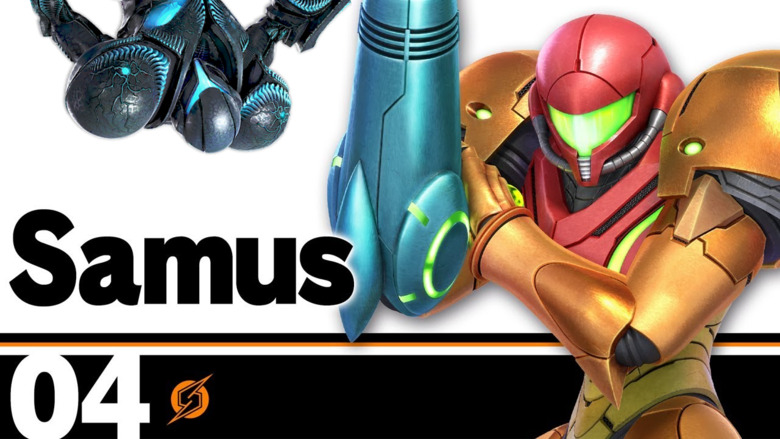Results Get!
REVIEW: Umbraclaw Hedges Its Bets
Catcom presents
Sometimes you need to take risks to get where you want in life. In Umbraclaw, you need to take risks to live at all. The game follows the recently deceased cat, Kuon, who is traversing the afterlife on a journey back to her owner in the land of the living. Getting there intact requires some gambling. You need to gamble on your skill, your navigational choices, and some randomly assigned bonuses. Umbraclaw bets on both hardcore-focused game design elements that up the tension and more casual-focused ones that aim to game the game approachable for anyone. These varied gambles create a compelling action-focused platformer unlike any other, yet I found that these hedged bets risk dulling the game’s full potential.
Perhaps the strangest risk that Umbraclaw takes is that it’s not quite what it appears to be at first glance. Minutes into starting the game, you’ll find yourself in the middle of an open map with paths leading into four different directions. Clearly this is one of those “Metroid Manias” you’ve heard so much about, right? Not quite.
Umbraclaw most closely resembles a straightforward, stage-clear style action game at heart. Each path only initially branch into different areas, leading into individual stages that are laid out into relatively linear jaunts to an end boss. Areas don’t interconnect and no backtracking is required. The open map functions more like a glorified stage select. In fact, the second half of the game foregoes the open map entirely for a more traditional stage select structure.
REVIEW: Unicorn Overlord Keeps You Marching Onward
Going overboard on Unicorn Overlord
Unicorn Overlord charges straight to the heart of what makes its take on strategy RPGs fun and that’s the greatest weapon in its arsenal. Before you know it, you’ll find yourself drafted into the Liberation Army, forming strategies, building units, and jumping from battle to battle. As you march onward, Unicorn Overlord ensures you stay the course by expanding your options and growing in complexity at a steady pace. There’s always something new just beyond the horizon, so when Unicorn Overlord gives you your marching orders, you feel compelled to keep going all the way to the end.
The story functions less like a compelling narrative and more like a framing device. You follow the military endeavors of a prince named Alain whose kingdom was stolen from him as a child. As an adult, he returns to his homeland ready to reclaim it one town at a time. Even when the plot borders on being too straightforward, it fits the game’s emphasis on the gameplay well while giving you just enough information and time with the characters to get attached. Of course, developer Vanillaware’s trademark visual stylings and strong character design do plenty of heavy lifting to get the job done.
Alain needs to grow in both strength and numbers to take his kingdom back. The Prince’s forces start small and the game revolves around growing from there. Virtually every fight adds new allies and resources to your arsenal and it’s satisfying to see your army expand. That path to power overtakes any concerns about the overarching story; I went long stretches of the game without even thinking about it.
Akira Toriyama, the legendary author of Dragon Ball, Dr. Slump, and many more manga has sadly passed away at age 68. An official statement has been provided by the Dragon Ball page:
While Toriyama was most well known for his work on Dragon Ball, he also created artwork and more for games like Dragon Quest, Chrono Trigger and many others.
Speaking of Dragon Quest, series creator Yuji Horii has released a statement on Toriyama’s passing. You can read it in full below, thanks to a translation from Gematsu.
Much like the sentence “Gunvolt is an Adept with an affinity for the Azure Striker Septima who fights against the Sumeragi Group with the help of his Muse, Lumen,” GUNVOLT RECORDS: Cychronicle will mean a lot more to you if you’re familiar with the subject matter. While primarily about score-attack platforming action, the Azure Striker Gunvolt series consistently lends an ear to the power of music. Songs save Gunvolt from certain death, signal when a truly skilled player is behind the controls, and enhance impactful story beats. Gunvolt’s music makes moments both in and out of gameplay memorable. Cychronicle jolts those memories to zap your appreciation of the series to electrifying new heights.
There’s no getting around it: this game exists primarily for established Gunvolt fans. More specifically, it exists for Gunvolt fans who love and accept its dips into musical idol culture. If you dislike the series’ many vocal songs or struggle with the fact that musical idols are an integral part of this series at all, you won’t find much to appreciate here. Cychronicle dives deep into this particular niche. For those willing to follow it into the abyss, you’ll find a spin-off that stands strong on its own merits while reinforcing the strengths of its platforming predecessors.
REVIEW: Apollo Justice: Ace Attorney Trilogy Works out in the End
Apollo Justice: Ace Attorney Trilogy is doing fine!
In the legal world, things rarely go exactly as planned. The original Ace Attorney trilogy helped set me on the path of practicing law, and throughout the many trials and tribulations I’ve encountered since, I’ve consistently found there to be no such thing as a perfect trial. You can’t prepare for every eventuality: unexpected facts may come to light, the case may shift at the Judge’s discretion, and people may say or do the wrong things. How well you adapt to the many twists and turns humanity throws your way determines the final outcome more than anything else. The Apollo Justice: Ace Attorney Trilogy collects a run of games that demonstrates this idea better than any other portion of the Ace Attorney series. These games may not be the perfectly planned continuation you’d expect, but they each build towards a grand conclusion that all works out in the end.
Whereas the original run of Ace Attorney games were penned by the same author and built out of the same parts, this sequel trilogy proves more eclectic. Apollo Justice: Ace Attorney (which I’ll be referring to as Ace Attorney 4) released in 2007 for the Nintendo DS. After this, the mainline entries took a break for six years until the release of Phoenix Wright: Ace Attorney - Dual Destinies (Ace Attorney 5) in 2013 on the Nintendo 3DS, which was then followed by Phoenix Wright: Ace Attorney - Spirit of Justice (Ace Attorney 6; perhaps you can see why I’m using shorthand with names like these) in 2016. Put simply, these games are separated by technology, by time, and by the teams that put them together.
They ultimately fit together fine enough, they just lack the strong cohesion that comes from crafting a trilogy in short succession. You can easily differentiate the voices behind each of these games. The realities of their production undeniably give this “Apollo Justice” trilogy a different feel from its predecessors.
The way I see it, the original Ace Attorney team told their story and it stands on its own just fine. There’s nothing wrong with new stories using these characters coming from people with different perspectives. It’s not dissimilar to how the comic book industry functions. Characters like Spider-Man endure due to the pantheon of legendary creators that built his mythology, not just one specific team. Ace Attorney itself has indulged in reinterpreting long-running characters like Sherlock Holmes to its own benefit, so complaining about the same thing happening to Ace Attorney would be hypocritical.
Still, the disparate nature of this trilogy makes for a tricky package to talk about. To keep things simple, I’ll state my case for each game and how this collection handles it individually. Once you’ve heard all the testimony, we’ll reconvene for a final judgment on the package as a whole.
Mega Man 2 is The Best - Mega Man Monthly (FINAL)
Saved The Best for last
Hyperbole invades talk about games constantly. Every game seems to define genres, be a masterpiece, or ruin lives as the worst thing ever made. I admire the enthusiasm, but am physically incapable of mustering it myself. If I write something then it needs to be what I honestly think, and I think that if we’re being honest, very few games actually live up to those descriptors. I can’t give you dramatized sales-pitches or disingenuous rants. I’d rather just give you my honest assessment of whatever the topic of the day happens to be; anything less than that would be a disservice to anyone who bothers to read what I write.
Mega Man 2 is the best. I don’t consider that statement hyperbole. You are free to disagree with me, you always are, but I am hopeful that you’ll at least hear (or read) me out. Whenever I thought about what would be the most important thing to cover in a monthly Mega Man series, I inevitably kept coming back to Mega Man 2. Frankly, when it comes to why I write about games at all, it always comes back to Mega Man 2. I figured, basically from the start of this monthly endeavor, why not explore that?
For this final installment of Mega Man Monthly, we’ll discuss this landmark Mega Man: what it is, what it means to be “The Best”, and why Mega Man 2 can claim such a crown. Mega Man 2 is one of those genre-defining masterpieces you’ve heard so much about, so it’s only appropriate for an article about to be all-encompassing in scope.
Capcom released Mega Man 11 over five years ago. That sentence hurt to write, so hopefully it hurt to read as well!
Although Mega Man 11 signaled a seemingly bright future for the series, that future remains just as murky as it was half a decade ago. Fans spent most of the 2010s believing Mega Man to be “dead,” roughly from Legends 3’s cancellation in mid 2011 to late 2017 when Mega Man 11 was first announced. We’re fast approaching a similarly long dry spell now. Some revival, huh? Yeah, collections, merchandise, and phone games continue to be pumped out, but that stuff existed while Mega Man spent time in Robot Heaven, too. If there’s no discernible difference between Mega Man being “alive” or “dead,” can you really say Mega Man has much of a future at all?
Sure you can. Whether Capcom releases one hundred more Mega Man games or none at all, it makes no difference. Mega Man’s future does not lie with Capcom or even Mega Man himself. You hold Mega Man’s future in your hands. You, me, and everyone else, are Mega Man’s future.
That sounds nice if somewhat unhinged, so let’s go on a journey of understanding. I’ll walk you through the current state of Mega Man as I see it and lead you to how I reached this conclusion. You can consider it like how Mega Man journeys through a boss’s stage before taking his power. Once you have my power you can…think about Mega Man a little differently than before? And then use that to defeat people who are weak to your thoughts? This analogy didn’t carry me as far as I hoped.
REVIEW: Yohane the Parhelion: BLAZE in the DEEPBLUE Sings Conventions to a Different Tune
This one's about hitting the right notes
Whether you’re a fan of the Yohane the Parhelion show or just 2D pixel art games in the vein of exploration-based classics like Metroid or Castlevania, you’ve probably seen something like Blaze in the Deepblue before. We want things we recognize, and Blaze in the Deepblue contains plenty of recognizable conventions. At the same time, we want something different too, because we can never just be happy, am I right? Luckily, Blaze in the Deepblue strikes just the right chords to successfully sing familiar conventions to a different tune.
I emphasize the musical slant here because Blaze in the Deepblue bases itself on anime about musically-inclined idols. More specifically, it bases itself off an alternate universe spin-off of an anime about musically-inclined idols that now takes place in a fantasy setting. If you have no idea what any of that means, I wouldn’t worry about it. It matters only to the extent that you care.
Repetition Reinforces Mega Man's Strengths - Mega Man Monthly
Stop me if you've heard this one before
Everyone repeats. Be it by choice or by circumstance, we all fall into some semblance of daily routine. While overfamiliarity can wear us down or make us unhappy, repetition offers some upsides as well. It helps us identify what we do like, and through repeated interactions, allows us to gain a deeper appreciation for the things that are important to us. And as we all know, nothing is more important than Mega Man. The repetitive nature of Mega Man reinforces his greatest strengths.
Mega Man is undoubtedly repetitive. His games cover a lot of the same ground and there are a lot of them to boot. When you play Mega Man, you can generally expect to fight a group of evil robots in a nonlinear order, precisely jump over any obstacles they lay in their way, take their powers, and eventually take the fight to the mastermind’s fortress at the end. Mega Man follows a formula – and while its various spin-offs may branch off into their own formulas, they adhere to them just as closely.
Repetition gets a bad reputation. Read any bad review of a video game, and the “repetitive” complaint stands an abnormally high chance of jumping out at you, like one of those enemies that hide in pits when you try to jump across them. Read virtually any review of a Mega Man game, and some snide comment about how similar the games he stars in are will fall on you, like one of those bird robots that drop the eggs. I have never liked how people held Mega Man’s formulaic nature against him.
The Manga that Captures Mega Man's Imagination - Mega Man Monthly
Mega Man Monthlymix
As you may glean from the monthly articles, I think Mega Man is pretty special. If you disagree, I am unlikely to convince you on my own. The best way to understand something is to engage with it yourself. To know Mega Man, you must play Mega Man games. Time stops for no one, however. If you simply play the original Mega Man games for the first time right now, you are unlikely to walk away with the same impressions I did. It can be difficult to remove yourself from modern day context and accept older games as they are. Enjoying Mega Man requires some imagination.
Sometimes the right combinations of thoughts and feelings can convey the context others need to leap over any hurdles laid out by the passage of time. From there, newcomers can freely discover what they find special about Mega Man for themselves. Even people who already love something can stumble upon new ways to appreciate it through this process – that’s largely what I aim to do with the things I write.
Hitoshi Ariga’s artwork stands as perhaps the single best example of converting one’s view of Mega Man into an artform. Mr. Ariga gets Mega Man; his obvious love for the character shines through every time he draws something for the series. Throughout the years, he’s contributed boss designs and a treasure trove of promotional material for the series. While all of that is impressive, his manga leaves a defining mark on the way I and many others (including Mega Man’s developers) view the character.
Mega Man Zero Defines Being a Hero - Mega Man Monthly
Ode to the Wounded Edgeboy
Titles carry weight to them. If someone were to call me a Mega Man expert (as I force everyone who speaks to me to do), you’d get the impression that I must know what I’m talking about on the subject. Similarly, if someone were called Mega Man, you’d get the impression that he must be some legendary hero who fights for everlasting peace. You may generally be right, but the Mega Man Zero series calls that idea into question.
The title of “hero” plays a vital role in the Mega Man Zero games. Their overarching narrative revolves around the sense of self that titles provide. In these games, Zero isn’t just Zero. In a meta sense, he assumes the role of “Mega Man” Zero. No longer the cool side character, he now plays the role of the main hero. Zero’s journey throughout this saga examines what it means to be a Mega Man, and ultimately, what defines being a hero.
A Serious Analysis of Mega Man, Soccer, and Spin-offs - Mega Man Monthly
From a goal-oriented mindset
This is serious. Mega Man plays soccer and no one talks about it. When was the last time you or anyone you know brought up this important fact? No one goes to dinner parties and says “hey, did you know Mega Man plays soccer!?” or some equally graceful attempt to broach the subject. Is this simply a failure of society as a whole, or does this phenomenon speak to something deeper? We all know that there must be more to this or else I would have very little to write about. To truly understand the situation, we must delve into the origins of Mega Man’s soccer-playing habits in the aptly-titled Mega Man Soccer.
I theorize that Mega Man Soccer lacks an important ingredient. As a result of this deficiency, Mega Man Soccer fails to stick in the hearts and minds of the people. This missing element, something that all memorable Mega Man games contain at least some trace amount of, is seriousness. Seriously! If you don’t believe me, I’ll show my work. If you do, I guess you can stop reading now. Thanks for your time, as always.
REVIEW: Ghost Trick Livens Up Life and the Absence Thereof
Trick and Treat
Dead people turn into ghosts, or so leading ghost behaviorists tell me. The presence of ghosts in Ghost Trick may then lead you to believe that it’s a game about death. Despite the subject matter, the greatest trick that Ghost Trick plays is twisting its grim concept into one that’s actually about life. That one weird trick transforms the game from a macabre idea to an endearing adventure. Everything in the game brims with life – most notably, even the things that aren’t supposed to.
Ghost Trick fits roughly into the category of “puzzle game,” but it’s not a clean fit. Typically, puzzle games follow rules and a sense of logic that expands as you progress. Rules do exist in the Ghost Trick: you can only possess inanimate objects, and you can only move from object to object within a limited range. Every rule beyond those, however, reflects the nature of the afterlife itself by being vague and mysterious. That’s both the fun and the heart of the game.
Mega Man Legends Gives a Glimpse of Everlasting Peace - Mega Man Monthly
Mega Man 64 for those who only speak Nintendo
Everybody knows that there’s something special about Mega Man Legends. You know it so well that I don’t need to give you any actual proof. If that’s what you’re looking for, just think to yourself: Why would people be so obsessed with it getting a third game for decades? Why would they cling onto anything even remotely resembling that sequel? Why would they swear a blood oath against Capcom lasting thousands upon thousands of generations until they one day receive retribution? None of that is normal, so the only explanation can be that Legends is special. That’s just how this all works, probably.
What exactly makes Mega Man Legends special can be difficult to describe. It marked Mega Man’s first step into the third dimension, so it naturally changes a lot in the transition. It changes so much that you could say that Legends represents the Anti-Mega Man. Legends subverts traditional Mega Man on a conceptual level, twisting the experience in virtually every way beyond the fact that you can still jump and shoot.
Yet while subversion often comes from a place of cynicism or disrespect, Legends contrasts with its predecessors from a place of love. The steps it takes to uncharted territory build on what came before with a sense of reverence. The journey explores concepts normally out of Mega Man’s reach. It is the natural endpoint of the franchise in ways beyond just the literal continuity of the series. For the first time, Mega Man Legends gives Mega Man’s world a glimpse of that elusive everlasting peace.
Minecraft: The Mega Man X Review - Mega Man Monthly
Only the finest Minecraftmanship for Mega Man
I’m back with the May edition of Mega Man Monthly, and this time I’m tackling something that was released in the past decade for once! Genuinely new Mega Man stuff releases pretty infrequently these days, so I think it’s important to highlight what little we get. With that in mind, I’m going out of my comfort zone and digging into the unknown depths of Minecraft. Last month I promised some flowers, but unfortunately I dug them all up in the process of Minecrafting. Sorry.
I know nothing about Minecraft. That may seem like a strange way to open a review, but I need to clarify my intentions here. I am not reviewing Minecraft today. I am Mega Man X reviewing Minecraft. Big difference.
Basically, Minecraft forced my hand here. It waved Mega Man in front of my face and in a fight-or-flight-esque reaction, I threw money at it. This means that I’m not approaching Minecraft’s Mega Man X DLC as a Minecraft fan or someone even remotely familiar with the game. That may not be particularly fair to Minecraft. Instead, I view this DLC primarily as a Mega Man Xperience, and will be judging it based on my Mega Man Xpectations.
Since the Mega Man X review format provides a new and innovative way to critique video games, I suppose I should lay out my criteria. It primarily boils down to “how well does this thing capture what makes Mega Man X cool”?
